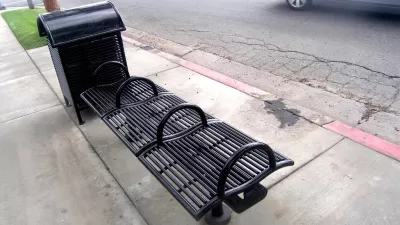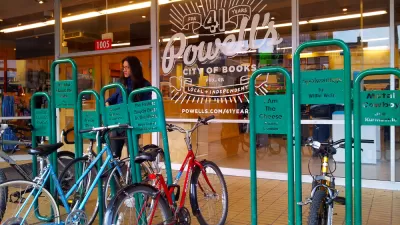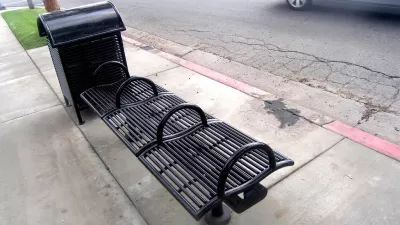In an effort to make public spaces more inclusive, a new pocket park in the Callowhill neighborhood will seek input from people experiencing homelessness on how to make the space more welcoming and functional.

Unlike most public parks, which actively discourage people experiencing homelessness from using their facilities, a new Philadelphia pocket park will be designed, in part, by and for people experiencing homelessness. Alfred Lubrano reports on the project, funded through a $82,500 grant from the William Penn Foundation and managed by the Sunday Breakfast Rescue Mission, the city's oldest and largest homeless shelter.
According to the National Recreation and Park Association, "nearly half of urban park and recreation agency directors in the United States view the homeless population as a 'nuisance that impedes other people’s enjoyment of park resources.'" In many cases, park authorities use "spikes, bumps, uncomfortably designed benches, and other pieces of so-called hostile architecture" to discourage long-term and overnight use. By contrast, the Philadelphia pocket park, located on a small stretch of North Pearl Street adjacent to Sunday Breakfast, seeks to provide a welcoming space for all community members. "The ideas for what the park will look like will come out of what residents and community members are interested in seeing," said Heidi Segall Levy, director of design services for the project. As of now, there is no plan for public bathrooms, "which foster safety concerns," but park plans call for hand-washing stations, storage space, and comfortable seating.
"We believe a successful public park is one that doesn’t exclude by design or stewardship anybody by race, ethnicity, housing status, or socioeconomic status,” said Judilee Reed, the William Penn Foundation’s program director of creative communities. Construction on the park is scheduled to start in 2022.
FULL STORY: A park that welcomes homeless people, partially designed by homeless people, will be a Philly first

Planetizen Federal Action Tracker
A weekly monitor of how Trump’s orders and actions are impacting planners and planning in America.

San Francisco's School District Spent $105M To Build Affordable Housing for Teachers — And That's Just the Beginning
SFUSD joins a growing list of school districts using their land holdings to address housing affordability challenges faced by their own employees.

The Tiny, Adorable $7,000 Car Turning Japan Onto EVs
The single seat Mibot charges from a regular plug as quickly as an iPad, and is about half the price of an average EV.

Seattle's Plan for Adopting Driverless Cars
Equity, safety, accessibility and affordability are front of mind as the city prepares for robotaxis and other autonomous vehicles.

As Trump Phases Out FEMA, Is It Time to Flee the Floodplains?
With less federal funding available for disaster relief efforts, the need to relocate at-risk communities is more urgent than ever.

With Protected Lanes, 460% More People Commute by Bike
For those needing more ammo, more data proving what we already knew is here.
Urban Design for Planners 1: Software Tools
This six-course series explores essential urban design concepts using open source software and equips planners with the tools they need to participate fully in the urban design process.
Planning for Universal Design
Learn the tools for implementing Universal Design in planning regulations.
Smith Gee Studio
City of Charlotte
City of Camden Redevelopment Agency
City of Astoria
Transportation Research & Education Center (TREC) at Portland State University
US High Speed Rail Association
City of Camden Redevelopment Agency
Municipality of Princeton (NJ)





























